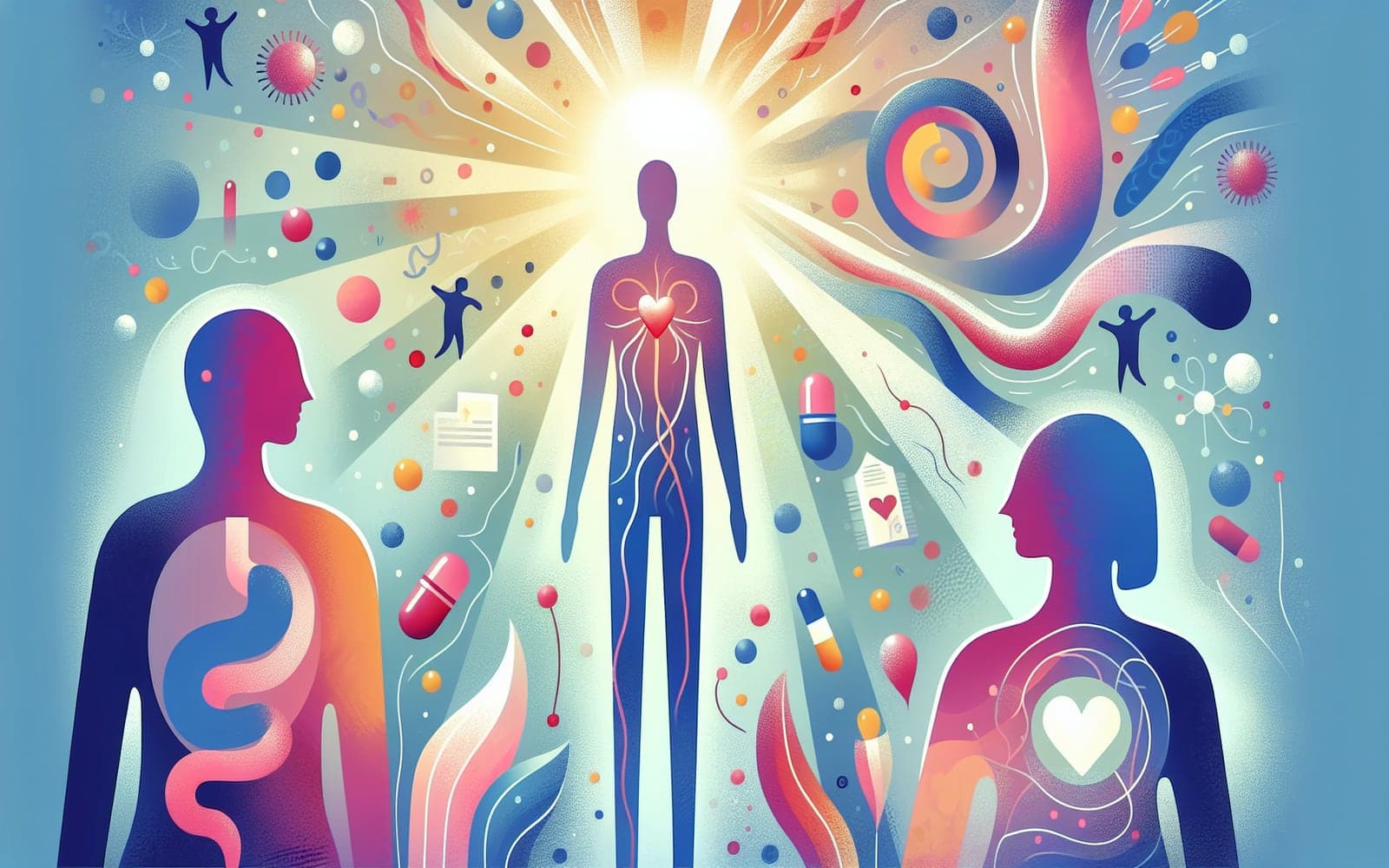What is Carcinoid Syndrome and Why Should You Care?
Published: Dec 05, 2023

Medically reviewed by Jerome Albert Ecker | MD, Assistant Professor of Medicine, Duke University - Durham, NC on December 5th, 2023.
Carcinoid syndrome is a complex set of symptoms caused by certain types of tumors. Understanding its features is crucial for early detection and management.
Contents
Understanding Carcinoid Syndrome
Carcinoid syndrome results from neuroendocrine tumors (NETs) releasing various substances into the body. These tumors are most commonly found in the digestive tract and lungs and can cause a range of symptoms due to their secretions.
Where Does It Happen?
NETs can develop in various parts of the body, but carcinoid syndrome often occurs with liver metastases. The liver usually deactivates tumor products, but when it can't, these products enter the bloodstream, triggering symptoms.

What Are the Symptoms?
The hallmark of carcinoid syndrome is episodic flushing, which affects 85% of patients. It can cause redness in the face, neck, and chest, along with a burning sensation, and sometimes blood pressure changes.
Frequently Asked Questions
It's caused by tumors releasing hormones into the body.
They are often found in the digestive tract and lungs.
Episodic flushing is the most common symptom.
Not always, but they are a common trigger for symptoms.
Key Takeaways
Understanding carcinoid syndrome is vital for managing its symptoms effectively.
Get started by discussing carcinoid syndrome with Doctronic today!Related Articles
References
Feldman JM, Jones RS. Carcinoid syndrome from gastrointestinal carcinoids without liver metastasis. Ann Surg 1982; 196:33.
Halperin DM, Shen C, Dasari A, et al. Frequency of carcinoid syndrome at neuroendocrine tumour diagnosis: a population-based study. Lancet Oncol 2017; 18:525.
This article has been reviewed for accuracy by one of the licensed medical doctors working for Doctronic. Always discuss health information with your healthcare provider.

